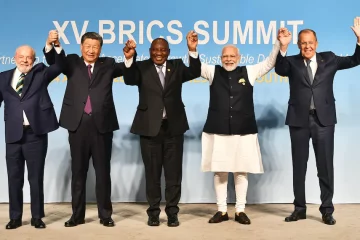
From BRICS to BRICS+: Implications for the Group, Multilateralism, and the Global South
Introduction After World War II, the multilateral system was designed to promote international peace, drive economic growth, and ensure global cooperation. Institutions such as the United Nations, International Monetary Fund, and World Trade Organisation established alliances, treaties, and agreements with the aim of achieving shared prosperity. In recent years, however, cracks are beginning to appear within this system. The world has witnessed a sharp increase in geopolitical crises like the Russia – Ukraine war, withdrawals from treaties, trade protectionism and back-sliding democracies. The multilateral system has also failed to deliver comprehensive solutions to global issues such as COVID-19 and climate change. As the inequalities within the multilateral system become increasingly apparent, calls for change are starting to reverberate across the …
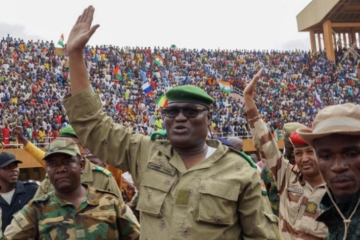
Breaking the Domino Effect: How the West Should Respond to Niger’s Coup
On 26 July, Niger’s presidential guard launched a coup against President Mohamed Bazoum, announcing their seizure of power in a televised broadcast. As the dust of the coup begins to settle, Niger — and the international community — stand at a crossroads. The military junta’s success in maintaining power is far from guaranteed and has been widely condemned. Several states and supranational organisations, including the US, France, the EU, the Economic Community of West African States (ECOWAS), and the African Union (AU) have threatened the military junta with sanctions if it does not reinstate President Bazoum, and have even considered military intervention. However, the Sahel’s track record of successful coups suggests that Niger is likely to see further democratic backsliding, …
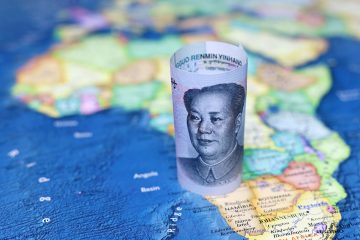
China’s Role in Restructuring Debt in Africa
Africa’s public debt burden has doubled from 2010 to date. Data from the International Debt Statistics Data as of December 2022 shows that African countries owe $ 644855.2 billion (USD). The International Monetary Fund (IMF) and the World Bank consider 22 low-income African countries to be either in debt distress or at high risk of debt distress as of November 2022. Debt distress in this context means a country is experiencing difficulties in servicing its debt. A high debt burden could risk the continent’s economic growth, development, and climate investments. The additional global economic downturn and falling commodity process could compound the issue for countries on the continent. While there is no immediate threat of systemic and financial collapse due …
Elections and the Politics of Fear in Uganda: The End of Post-Liberation Politics?
Zbigniew Brzezinski noted that the politics of fear is an efficient means of control because it “obscures reason and intensifies emotions.” After more than 34 years in power, President Museveni of Uganda—who toppled Milton Obote’s regime in 1986 after years in the bush with the National Resistance Movement (NRM)—understood the politics of fear better than anyone else. If one still had doubts, the death of around 40 people in Kampala at a political rally organized by Bobi Wine, Museveni’s main opponent, in November came to confirm one thing: it is election season in Uganda. On 14 January 2021, Ugandans will go to the polls. Museveni will most likely win re-election, after having scrapped the presidential term and age limits in 2005 and 2017 respectively. However, this piece argues that the intense politics of fear used by his regime can be interpreted as the possible end of post-liberation politics in Uganda. Post-liberation …
Consensus deficit on electoral rules threatens Ghana’s democratic stability
Ghana goes to the polls on December 7th. However, for the first time in 24 years, the major stakeholders—including the Electoral Commission (EC) and the leading opposition National Democratic Congress (NDC) party—could not arrive at a consensus over the electoral rules that will govern the election in 2020. Agreed upon electoral rules have historically been critical towards securing a stable electoral process. Amidst the prevailing dispute on the electoral rules, we argue that a tense political climate is building which, if not well managed, could lead up to violent contestation of the results of the December 2020 elections and, in the process, undermine Ghana’s time-honoured integrity as a beacon of democracy in Africa. Background on the dispute The dispute over the rules for this year’s election …
Internet Suppression and Violence in Uganda: Implications for the 2021 Elections
In 2016, Uganda’s Presidential election was met with a surge in violence. More than 20 people reportedly died and even more were threatened and beaten in the lead-up to the election. Current Ugandan President Yoweri Museveni, who has ruled the country since 1986, captured another term in office through a strategy that relied on intimidation tactics. Voters throughout the country were told that their regions would not receive aid support if they did not vote for Museveni, leading EU and U.S. election monitors to deem that there was “an atmosphere of intimidation” that was “deeply inconsistent with international standards.” In the lead-up to next year’s election, there are again fears of an illegitimate democratic process. Namely, increasing internet suppression may mar the outcome of the …
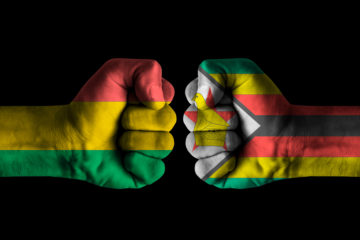
From Zimbabwe to Bolivia: what makes a military coup?
Evo Morales, president of Bolivia since 2006, resigned on November 10 following weeks of demonstrations triggered by a disputed election in October. Morales won the election amid allegations that the result was rigged in his favour. The turning point in Morales’s departure from office was the intervention of Williams Kaliman, commander of the Bolivian armed forces. Speaking at a press conference, Kaliman urged Morales to resign “for the good of our Bolivia”. Morales has since gone into exile in Mexico and the manner of his departure has sparked passionate debate about whether it was tantamount to a military coup. Two years ago this month, the Zimbabwean military placed former President Robert Mugabe under house arrest. Subsequently, SB Moyo, a major …
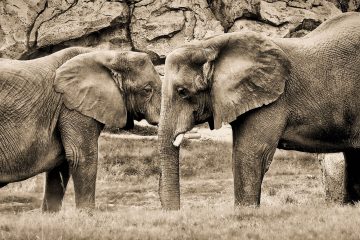
Irrelephant: The Misleading Connections Between Terrorism and Ivory Poaching
The world is experiencing an ‘environmental crime crisis’. Dwarfed only by the trafficking of drugs, humans and counterfeit goods, the illegal wildlife trade is estimated to be the fourth largest type of transnational organised crime. But compared to the smuggling of bullets and bodies, wildlife crime is vastly under-researched. Most people have not even heard of the world’s most trafficked mammal, the humble and far from headline-grabbing pangolin. Yet one area of this booming illicit trade receives more attention than most: poaching for ivory and rhino horn. Driven by growing Asian prosperity, particularly in Vietnam and China, a revived market for ivory and horn has expanded to unprecedented heights for modern times. Accompanying this growth is a narrative which connects …









